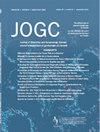Reconsidering RhIg Following Threatened, Spontaneous, or Induced Abortions in the First Trimester
IF 2.2
Q2 OBSTETRICS & GYNECOLOGY
引用次数: 0
Abstract
Routine Rh(D) immunoglobulin (RhIg) administration following first-trimester threatened, spontaneous, or induced abortions is a long-standing practice, but emerging evidence suggests limited benefit. This editorial reviews the outdated data that have informed current guidelines and presents contemporary literature demonstrating a negligible risk of RhD alloimmunization at early gestational ages. Recent studies challenge the necessity of RhIg in the first trimester and highlight the clinical, resource, and equity-related harms of routine use. In light of evolving evidence and the need to optimise health care delivery, we recommend against routine RhD testing and RhIg administration for first-trimester threatened, spontaneous, or induced abortions.
妊娠早期先兆流产、自然流产或人工流产后重新考虑RhIg。
妊娠早期先兆流产、自然流产或人工流产后常规注射Rh(D)免疫球蛋白(RhIg)是一种长期的做法,但新出现的证据表明益处有限。这篇社论回顾了为现行指南提供信息的过时数据,并提出了当代文献,表明早期妊娠期异体免疫接种RhD的风险可以忽略不计。最近的研究对妊娠早期进行RhIg的必要性提出了质疑,并强调了常规使用的临床、资源和公平相关危害。鉴于不断发展的证据和优化医疗服务的需要,我们建议不要对妊娠早期先兆流产、自然流产或人工流产进行常规RhD检测和rhg管理。
本文章由计算机程序翻译,如有差异,请以英文原文为准。
求助全文
约1分钟内获得全文
求助全文
来源期刊

Journal of obstetrics and gynaecology Canada
OBSTETRICS & GYNECOLOGY-
CiteScore
3.30
自引率
5.60%
发文量
302
审稿时长
32 days
期刊介绍:
Journal of Obstetrics and Gynaecology Canada (JOGC) is Canada"s peer-reviewed journal of obstetrics, gynaecology, and women"s health. Each monthly issue contains original research articles, reviews, case reports, commentaries, and editorials on all aspects of reproductive health. JOGC is the original publication source of evidence-based clinical guidelines, committee opinions, and policy statements that derive from standing or ad hoc committees of the Society of Obstetricians and Gynaecologists of Canada. JOGC is included in the National Library of Medicine"s MEDLINE database, and abstracts from JOGC are accessible on PubMed.
 求助内容:
求助内容: 应助结果提醒方式:
应助结果提醒方式:


